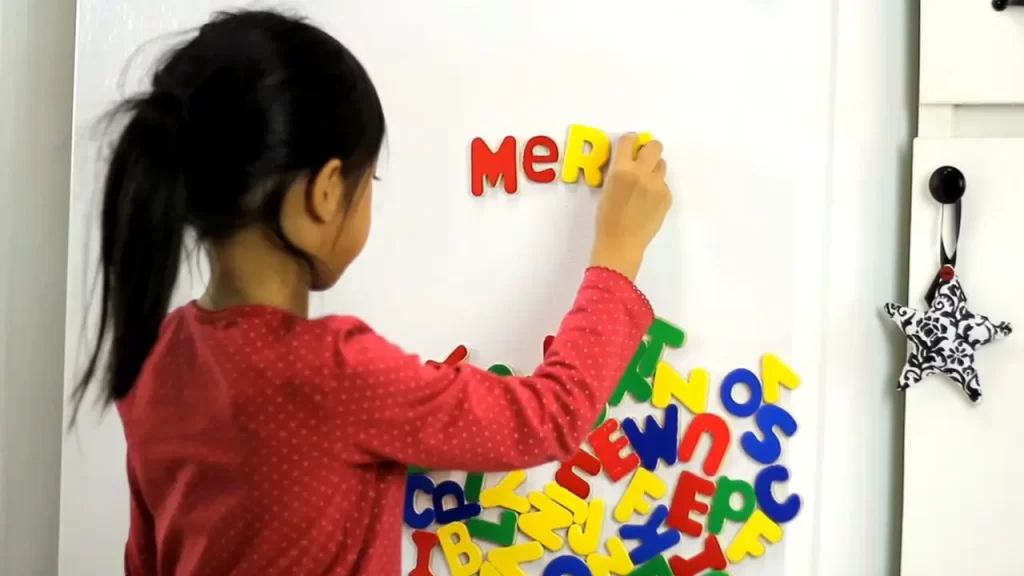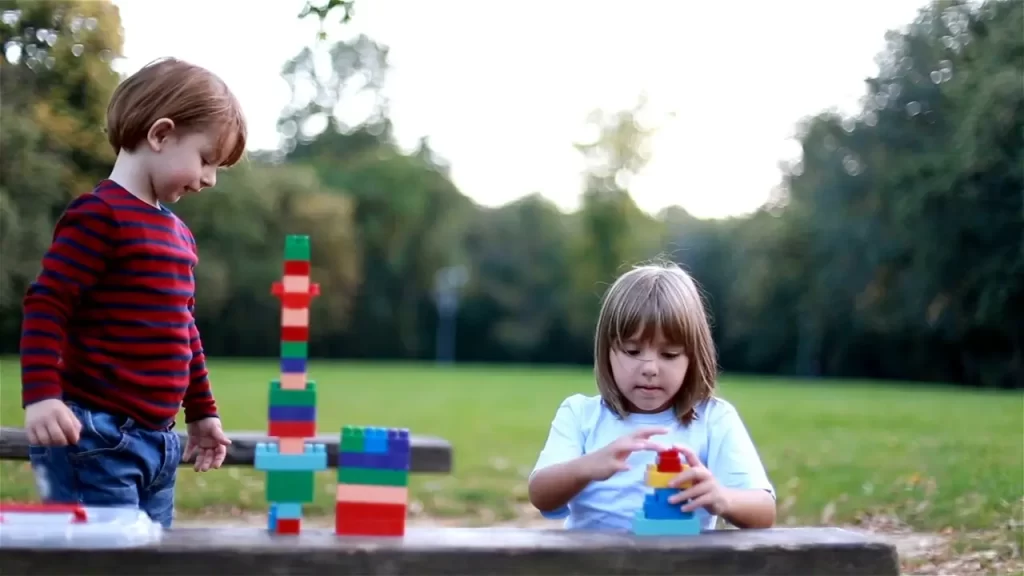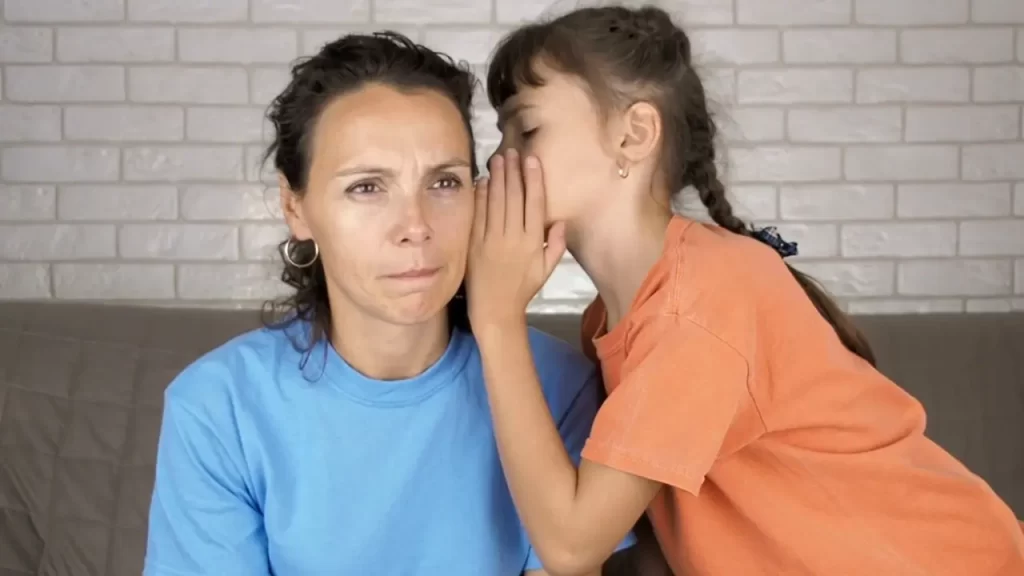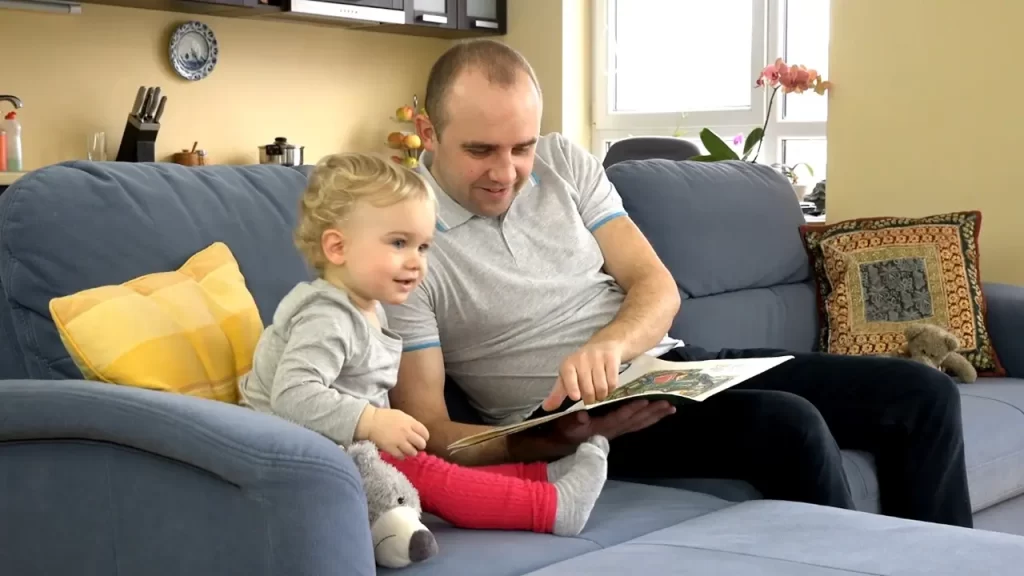The first word that comes out of the child’s mouth is one of the sweetest memories of life. But when your child is not able to speak even at the right age, it can become a problem.
Listening to children speaking for the first time is a happy moment for parents and a memory that they will never forget. Usually children start speaking after 2 years, but the level of development of all children is different. Some children start speaking early, while some children take time, which has a limit.

Shinki, a resident of Ghaziabad, is a housewife. She tells that her elder son was also a ‘late talker’. He neither spoke nor could make us understand his point. Due to this, we used to suffer a lot. We were afraid that our child should not be left behind his friends, his confidence should not decrease. Due to this, we started getting very mentally disturbed. Then we consulted a doctor and after some time we got relief from this problem.
What is a ‘Late Talker’?

A two-year-old child can say about fifty words and can speak sentences of two-three words. By the age of three, the language skill of children develops and the number of words also reaches one thousand. On the other hand, those children who have a lot of difficulty in speaking and explaining their words are called ‘late talkers’.
Let’s delve into the fascinating world of toddler language development. 🌟
Around the age of two, most children typically:
- Use simple two-word phrases, like “more milk.”
- Ask one- or two-word questions, such as “Go bye-bye?”
- Follow simple commands and understand basic questions.
- Speak about 50 to 100 words.
- Are understood at least half the time by adults who don’t know them.
As they approach three years old, their language skills continue to blossom:

- They speak in two- and three-word phrases or sentences.
- Their vocabulary expands to include 200 to 1,000 words.
- They ask questions starting with “who,” “what,” “where,” or “why,” like “Where is mommy?”
- They refer to themselves using pronouns (e.g., “I,” “me,” “my,” or “mine”).
- Familiar listeners, such as family members, can understand them most of the time.
Now, about those “late talkers”: These are children who struggle with expressing themselves verbally. A “late talker” refers to a toddler who experiences late language emergence (LLE).
Typically, these children start speaking later than their peers, usually between 18 and 30 months old. They often have a limited vocabulary and may find it challenging to combine words into phrases or sentences.
Late talkers can be an early or secondary sign of various developmental disorders, including autism spectrum disorder, fetal alcohol spectrum disorder, attention deficit hyperactivity disorder, intellectual disability, learning disability, social communication disorder, or specific language impairment.

While lack of language development and comprehension skills pose potential risks as they age, the outlook for late talkers is generally favorable. Early language interventions, such as general language stimulation, focused language stimulation, and milieu teaching, can significantly improve their language skills.
If you suspect your child might have a speech delay, consider consulting their health care provider. Speech pathologists specialize in working with late talkers, providing individualized support tailored to each child’s unique needs.
Early intervention can make a significant difference, and professionals can assess any underlying issues. Remember, every child develops at their own pace! 🌈
Neurological Reasons

Sometimes a child can be a late talker due to neurological reasons, such as autism, Down syndrome etc. If there is any problem in the tongue from birth, then also the child faces this problem, which is also called ‘tongue’. Sometimes a child can also be a late talker due to lack of oxygen in the brain. Children who are born prematurely, often they also start speaking late.
Let’s explore the various neurological reasons that can contribute to a child being a late talker:
Autism Spectrum Disorder (ASD):
- Children with ASD may experience delays in speech and language development. Communication challenges are a hallmark of autism.
- Early intervention, such as speech therapy, can significantly improve communication skills in children with ASD.
Down Syndrome:
- Down syndrome is a genetic condition caused by an extra copy of chromosome 21.
- Children with Down syndrome often have delayed speech and language development due to intellectual disabilities and physical differences affecting the mouth and tongue.
- Speech therapy can help improve communication abilities.
Ankyloglossia (Tongue Tie):
- Ankyloglossia, commonly known as “tongue tie,” occurs when the tissue connecting the tongue to the floor of the mouth is too tight.
- This condition can affect tongue movement, making it difficult for a child to articulate sounds and words.
- Surgical correction or speech therapy may be recommended.
Prematurity and Lack of Oxygen:

- Premature birth can impact a child’s overall development, including language skills.
- Babies born prematurely may have underdeveloped brain structures, affecting language centers.
- Lack of oxygen during birth (birth asphyxia) can also lead to delays in speech and language development.
Remember, every child is unique, and developmental milestones vary. If you suspect your child is a late talker, consult a pediatrician or a speech-language pathologist. Early intervention and support can make a significant difference in helping children overcome these challenges. 🌟
Single Family
One of the biggest reasons for this is the increasing trend of single families. When children live in a joint family, they listen to something or the other throughout the day and try to speak. But the development of children growing up in crèches is not the same as it happens in the family. Due to this, children become late talkers.
Let’s explore the impact of family structure on children’s language development, especially in the context of single families and joint families. 🌟
Single Families:

- In single-parent families or nuclear families, children often have fewer people around them to engage in conversations.
- The absence of extended family members can limit exposure to diverse language models.
- Single parents may have less time to engage in lengthy conversations due to work and other responsibilities.
- As a result, some children growing up in single families may experience delays in language acquisition.
Joint Families:

- In joint families, children are surrounded by multiple family members—parents, grandparents, aunts, uncles, and cousins.
- They hear a variety of voices, accents, and vocabulary throughout the day.
- Joint families provide a rich linguistic environment where children learn by observing and interacting with different family members.
- Conversations during meals, playtime, and daily routines contribute to language development.
Crèches (Daycare Centers):

- Children attending crèches or daycare centers may have a different language experience.
- While crèches offer socialization and structured activities, they may not replicate the intimate family interactions.
- Children in crèches interact with peers and caregivers, but the exposure to extended family members is limited.
- Some children adapt well to this environment, while others may experience delays in language development.
Remember that each child’s language journey is unique. Regardless of family structure, consistent communication, reading aloud, and engaging in conversations with children are essential for their language growth. 🌈
Now Know the Solution
If your child is also a late talker, then spend more time with him. Ask him what he did the whole day. Show him things and ask him what they are. The sooner the child gets knowledge of things, the sooner he will learn to speak. Read books with the child, tell him stories, jokes, poems. Teach him to mingle with other children and take him for a walk in the park. Even then, if the child is having problems in speaking, then consult a speech therapist without wasting time.
Let’s explore practical solutions to support a late-talking child’s language development:
Quality Time and Conversation:

- Spend quality time with your child. Engage in conversations throughout the day.
- Ask open-ended questions about their experiences, feelings, and observations.
- Encourage them to express themselves, even if it’s through gestures or single words.
Explore the World Together:
- Show your child objects, animals, and everyday items. Describe them and ask your child to repeat.
- Point out colors, shapes, and textures. This helps build vocabulary.
- Narrate your actions during daily routines (e.g., “Now we’re washing hands,” “Look at the red ball!”).
Read Aloud and Tell Stories:

- Read age-appropriate books together. Choose colorful picture books with simple sentences.
- Discuss the pictures, characters, and events. Encourage your child to comment.
- Create your own stories or retell familiar ones. Use expressive tones and gestures.
Jokes and Rhymes:
- Share simple jokes or funny sounds. Laughter encourages language development.
- Sing nursery rhymes, songs, and fingerplays. Repetition helps memory and language skills.
Social Interaction:
- Arrange playdates with other children. Interaction with peers fosters language growth.
- Visit parks, playgrounds, and community events. Encourage your child to interact with others.
Consult a Speech Therapist:

- If your child continues to struggle with speech, seek professional help.
- A speech therapist can assess your child’s needs and provide targeted interventions.
- Early intervention is crucial for optimal language development.
Remember, patience and encouragement are key. Celebrate every small milestone, and enjoy the journey of language discovery with your child! 🌈
Music is Also a Solution to the Problem

Many children speak late due to not getting the right language environment, so sometimes ADHD i.e. Attention Deficit Hyperactivity Disorder as well as other disorders and the increase in jaundice at the time of birth is also an important reason for this. The most important thing is that you should not panic. You can overcome this problem by getting the right treatment for the child at the right time, so that he will also start behaving like normal children. Talk to your child, play with him. You should play music for him as music stimulates your child's muscles and opens them up, which can help in solving the problem your child is facing in speaking.
Let’s explore the role of music and other factors in supporting a child’s language development, especially when they are late talkers. 🌟
Language Environment:
- Exposure to a rich language environment is crucial for language development.
- Children who lack sufficient language input may experience delays in speech.
- Engage in conversations with your child, read aloud, and describe everyday experiences.
Attention Deficit Hyperactivity Disorder (ADHD):
- ADHD can affect attention, focus, and impulse control.
- Some children with ADHD may struggle with language development due to attention difficulties.
- Early intervention, behavioral strategies, and therapy can help manage ADHD symptoms.
Other Disorders:
- Various developmental and neurological disorders can impact language skills.
- Consult a pediatrician or specialist if you suspect any underlying condition.
- Speech therapy and individualized interventions can address specific needs.
Jaundice and Birth Factors:

- Jaundice (yellowing of the skin) occurs due to elevated bilirubin levels.
- Severe jaundice can affect brain function and potentially delay language development.
- Timely medical care during jaundice is essential to prevent complications.
Avoid Panic:
- As a parent, it’s natural to worry, but avoid panic.
- Seek professional advice and support. Early intervention is key.
- Patience and consistent efforts make a difference.
Music as a Stimulant:

- Music engages various brain areas, including those related to language.
- Listening to music stimulates neural pathways and enhances cognitive abilities.
- Play soothing melodies, nursery rhymes, and songs for your child.
Remember, every child’s journey is unique. Celebrate progress, provide a nurturing environment, and seek professional guidance when needed. Your love and attention will help your child thrive! 🌈


































I rattling delighted to find this web site on bing, just what I was searching for : D besides saved to fav.
You have brought up a very excellent details , thanks for the post.
you’re really a good webmaster. The web site loading speed is amazing. It seems that you are doing any unique trick. Moreover, The contents are masterpiece. you’ve done a wonderful job on this topic!
Undeniably believe that which you stated. Your favorite reason seemed to be on the net the easiest thing to be aware of. I say to you, I definitely get annoyed while people consider worries that they just do not know about. You managed to hit the nail upon the top as well as defined out the whole thing without having side effect , people could take a signal. Will probably be back to get more. Thanks
Please let me know if you’re looking for a author for your site. You have some really great posts and I feel I would be a good asset. If you ever want to take some of the load off, I’d absolutely love to write some material for your blog in exchange for a link back to mine. Please blast me an e-mail if interested. Thanks!
Hi my friend! I wish to say that this article is amazing, great written and include almost all significant infos. I’d like to peer more posts like this.
You can certainly see your expertise in the work you write. The world hopes for even more passionate writers like you who are not afraid to say how they believe. Always follow your heart.
Your place is valueble for me. Thanks!…
Heya this is kind of of off topic but I was wanting to know if blogs use WYSIWYG editors or if you have to manually code with HTML. I’m starting a blog soon but have no coding skills so I wanted to get guidance from someone with experience. Any help would be enormously appreciated!
Way cool, some valid points! I appreciate you making this article available, the rest of the site is also high quality. Have a fun.
Hi, Neat post. There’s an issue together with your website in web explorer, might test thisK IE still is the marketplace leader and a large portion of people will leave out your magnificent writing because of this problem.
I’ve been absent for a while, but now I remember why I used to love this website. Thanks , I will try and check back more frequently. How frequently you update your web site?
Good post. I study one thing more difficult on completely different blogs everyday. It’ll at all times be stimulating to read content material from other writers and practice a little one thing from their store. I’d choose to make use of some with the content material on my blog whether or not you don’t mind. Natually I’ll offer you a link in your net blog. Thanks for sharing.
I’ve been absent for a while, but now I remember why I used to love this blog. Thank you, I’ll try and check back more frequently. How frequently you update your website?